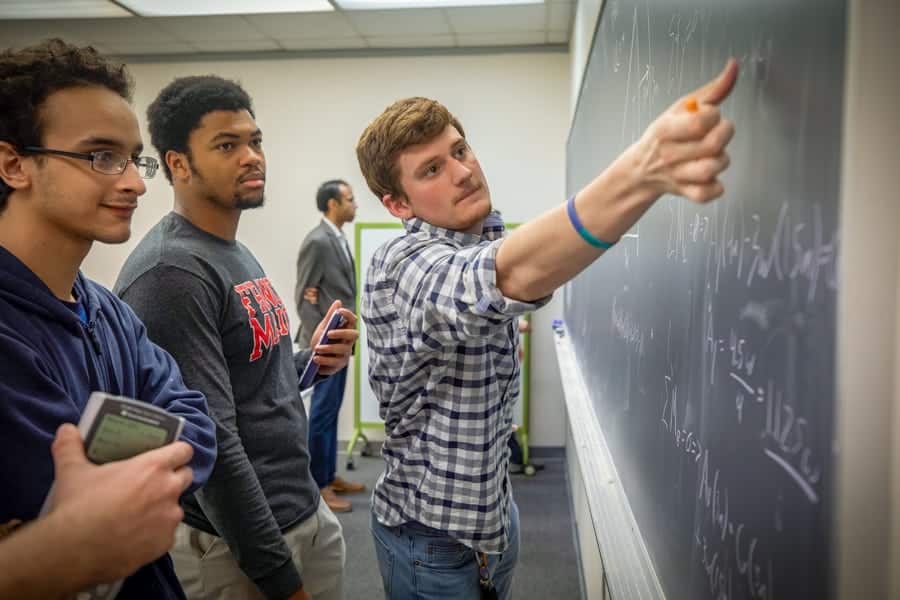February 10, 2020

FMU’s first Mechanical Engineering cohorts begin matriculation
A new year and another new program is underway at Francis Marion University.
FMU’s first class of Mechanical Engineering students began their studies this spring. There are 30 students in the first two cohorts. The program will produce its first graduates in 2022. It’s expected to produce 15-20 graduates a year when it matures.
The program is FMU’s second engineering major. It follows the very successful industrial engineering program, which launched in 2014 and saw its first graduates in 2017. Every FMU industrial engineering graduate to date has either been employed in the field immediately after graduation or enrolled in a graduate degree program.
Dr. Rahul Renu, the director of the Mechanical Engineering program says Mechanical Engineering was an excellent fit for FMU’s burgeoning engineering field.
“Both programs meet a real need in the workplace and fit with the tradition of excellence in the Department of Physics and Engineering),” says Renu. “Our students are excited about this new program. We are, too. We can’t wait to see our first graduates cross the stage.”
Mechanical engineering involves applying the physics of motion (force, energy, and kinematics) to design equipment, devices, and machines. Mechanical engineers have the ability to analyze and design objects and systems with motion. Mechanical engineers work in a variety of design and manufacturing industries, including aerospace, automotive, construction, energy, and robotics.
The demand for mechanical engineers in South Carolina is expected to outpace the national demand through the next decade, according to statistics from the United States Bureau of Labor Statistics, and national job growth in the field is projected to be at least as strong as overall job growth. The bureau reports the median salary of mechanical engineers nationally was $87,306 in 2018, the last year for which statistics are available.
Students in the program typically have proven competencies in mathematics and science. The FMU curriculum provides students with hands-on experiences as well as a strong theoretical foundations in engineering fundamentals. Students will take courses related to Engineering Graphics, Materials Engineering, Manufacturing Processes, Thermodynamics and Heat Transfer, and Engineering Statics and Dynamics. Internships are a major part of the program, as they have been in the Industrial Engineering program.